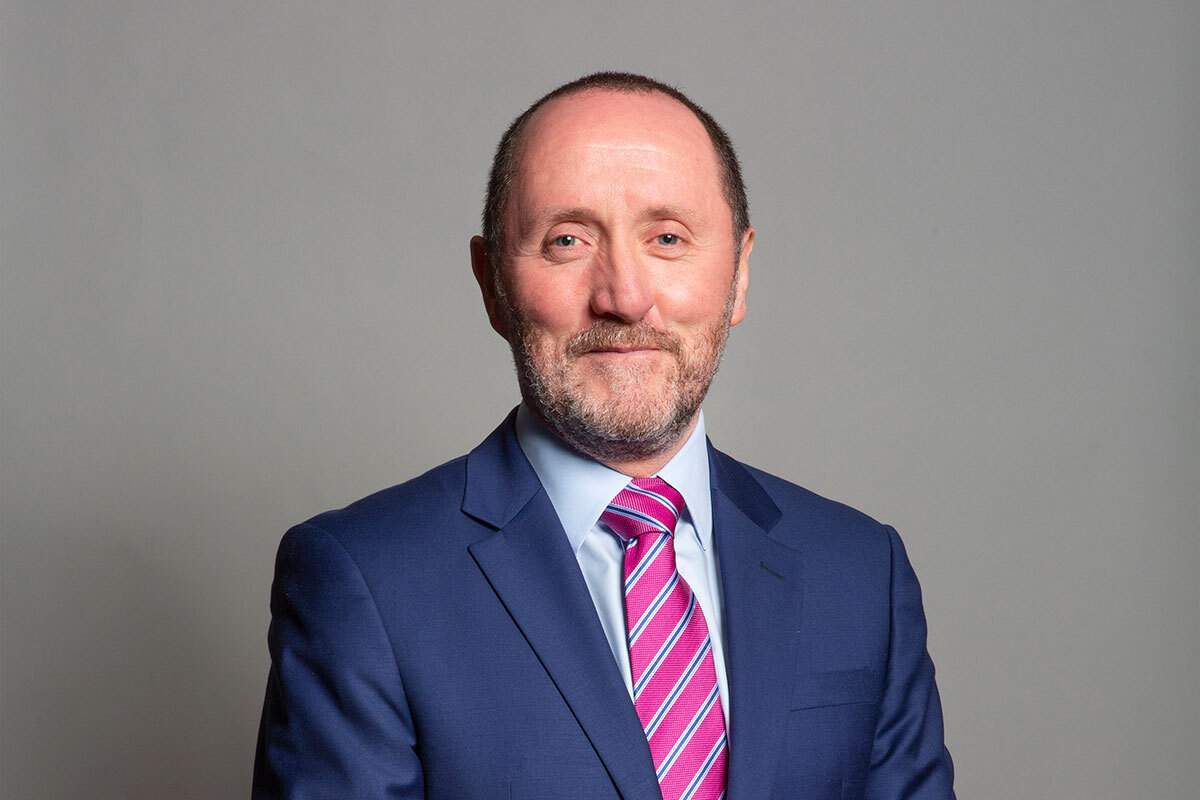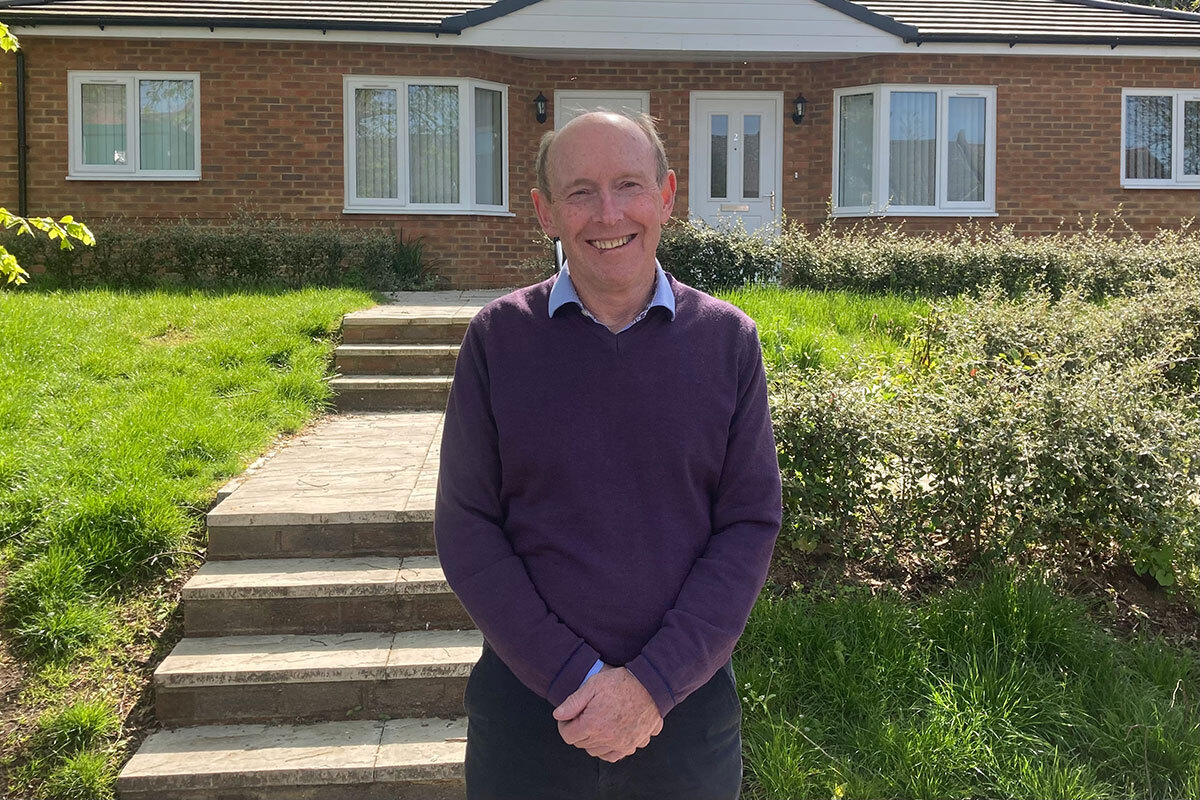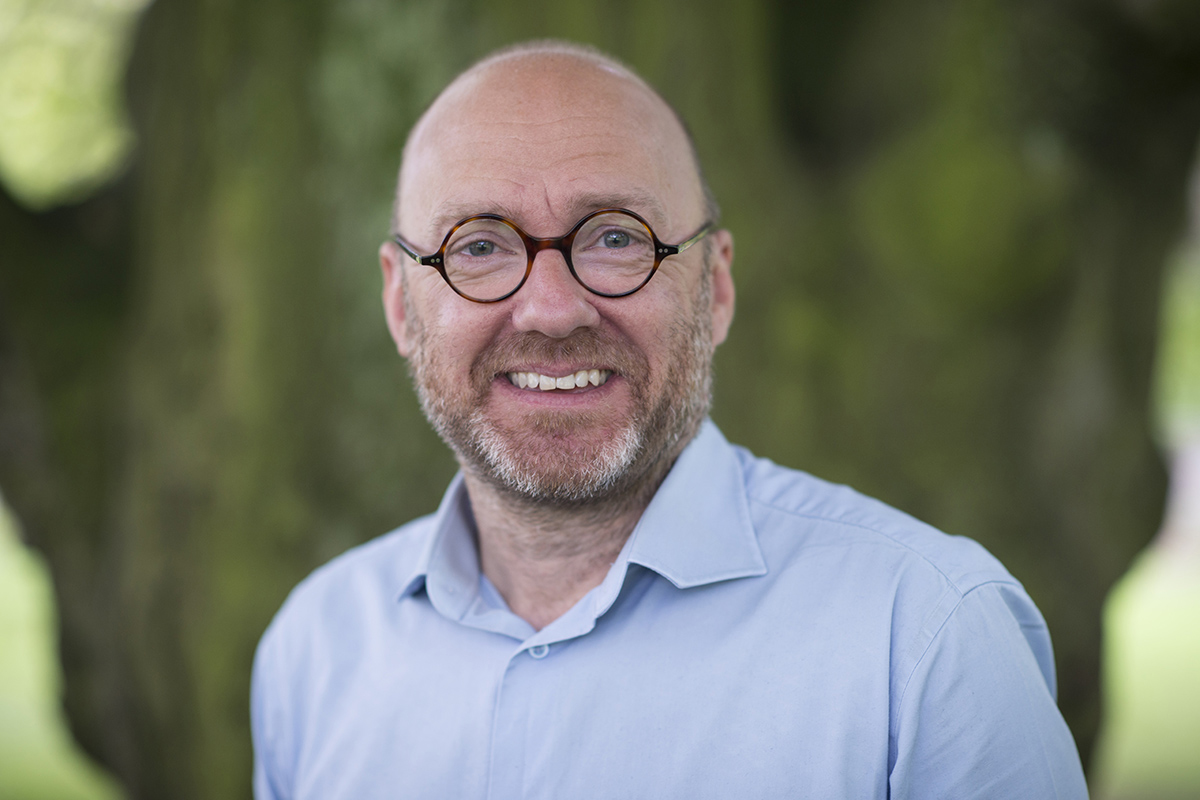15 minutes with… Eddie Hughes, former minister for rough sleeping and housing
Eddie Hughes is the Conservative MP for Walsall North and served as minister for rough sleeping and housing from 2021 to 2022. He was also chair of housing association WHG from 2016 to 2018. He talks to James Riding about his time as a minister, Housing First and the government’s target to end rough sleeping by the next election

What was it like putting together the government’s rough sleeping strategy?
Being able to pull in other ministers into the fight was what made working on that project so exciting.
For example, if you imagine that people come out of prison and have nowhere to live, then the likelihood of them reverting back to crime is significant. So short-term accommodation for prison leavers immediately after coming out of prison was incredibly critical.
[There was also] lots of discussion about mental health provision, discussion with the Treasury about what we could fund, and working with the mayors Andy Burnham [Greater Manchester] and Andy Street [West Midlands].
The person who I feel the most personal credit [for] was Greg Clark, when he took over as secretary of state [in July 2022]. He stepped in at the end when I genuinely thought all was lost. Imagine what the summer was like. Boris [Johnson] is on the way out; everything in an absolute state of flux. Yet, Greg somehow managed to convince everybody that it was going to work.
In your view, has Housing First been a success?
I have to say, I’m slightly less convinced about the case than [Mr Burnham and Mr Street] both are, only because of the complete open-ended nature of it.
In principle, it is completely the right thing to do. You turn up at a council with really complex medical and physical health needs. It takes a while to get you supported into a position where you’re able to support a tenancy on your own. Therefore, it’s difficult to put a time limit on that.
However, that bumps into the reality of the fact that government funding is finite and sometimes time limited. So how do you manage to sustain that sort of support?
There is an opportunity cost. I make no apologies for saying that some of this will come down to numbers. If it cost me £10,000 to help one person or I can help 10 individual people with £1,000 interventions, then there has to be some balance between those two.
Of course, you need to support people who are the most complex and the most in need of help. But you also need to be mindful of the fact that we need to help as many people as we possibly can.
Lots of the outcomes in the research we’ve done as a government on Housing First are good. And people are at least in a considerably better position, if not in a position where they’re able to sustain a tenancy on their own. So progress in and of itself is a good thing without reaching the ultimate endgame.
But, speaking personally, I’m slightly more sceptical.
Why did you step down as a minister in September 2022?
The Boundary Commission was in the process of redrawing the constituency boundaries. I thought that, whatever happens, I’m going to need to concentrate on my seat and therefore wouldn’t be able to handle ministerial responsibility.
Then the Boundary Commission redrew the boundaries again, which meant I needed to go and look for another seat. So I’m looking for a new home.
How many votes do you think there are in homelessness?
I would say few or none. It is, of course, an incredibly pronounced fact out in Westminster, but there are other parts of the country where it is not an issue at all. At the last rough sleeping count in Walsall, we had maybe eight people sleeping rough.
But as a society, surely, do we think it’s appropriate that people have to sleep on the street in the fifth largest economy on the planet? Absolutely not.
People accept that. As much as clean drinking water isn’t an electoral vote winner, it’s something people expect.
The terrible nature of some exempt accommodation has been a huge story in Birmingham. What is your experience of this?
When I worked at YMCA Birmingham, we were being approached by businessmen who had understood that you could charge higher rates through housing benefit for exempt accommodation. Therefore thought that they could create some nice HMOs, we as YMCA will provide the support that was required and they would take the cash from the rest of it.
We were being approached by a lot of people. I would tell them what we were really expecting to charge in terms of the management service, providing support and maintenance and so on. And they would say, “No way, that’s not the figure we’re prepared to pay”, and off they would go and find somebody else who would provide some tokenistic cover support for them.
We were telling Birmingham Council at the time this is a problem. Just because we’ve said no, doesn’t mean that they’re not going to find somebody to provide the support – and it will be terrible support, and this problem will grow.
Now, people are coming up with apps to twist people with the accommodation. It is almost in the best interest of some of those rogue landlords to perpetuate the dependency. They’re happy to take the money, they don’t care whether the person in their accommodation is progressing in any way.
Is the government going to reach its target of abolishing rough sleeping by the next election?
Do you know what? I don’t know. But, let’s face it, since we started working on the strategy, conditions – such as the cost of living crisis – have brought to bear another level of pressure, so it is more difficult.
I feel like I’m trying to wriggle out of this, the way I’m making this case. But there is an important thing to understand, with regard to statistically what it would be if that’s the case. How do we compare with international comparators? We are significantly better, for example, than the United States and, yet, not as good as others. But actually, we’re a very good place when it comes to those international comparisons.
Does ending rough sleeping mean that there will be nobody on the street? No, it doesn’t mean that because for some reason you might fall out with your partner tonight and drop onto the street. The service wouldn’t sweep in to support you that quickly.
But do we have a very robust offer in terms of the ability to provide short-term accommodation, together with support that people would need associated with their physical and mental health? I think we’re in an amazingly good place in terms of pulling all those things together.
So do I think we’re going to achieve it? Well, if we do, it’s going to be a close-run thing, to say the least. But, also, do I think there’s a government that now thinks differently about tackling it and is more able to work between government departments, and some of the stuff that we’ve set in place should last? Yes, I absolutely do.
Sign up for our daily newsletter
Already have an account? Click here to manage your newsletters
‘15 minutes with…’ series
In our ‘15 minutes with…’ series, we have a quick chat with the biggest names in the sector about the most important issues.
Previously, we have featured:
Mushtaq Khan, chief executive of the Housing Diversity Network
Barbara Brownlee, chief executive of Soho Housing
Eddie Hughes, former minister for rough sleeping and housing
Geeta Nanda, chief executive of Metropolitan Thames Valley Housing
David Bogle, chair of Homes for Cathy
Laurence Carr, money coach at Yorkshire Housing
Dinah Roake, chair of the London Housing Panel
Sheron Carter, chief executive at Hexagon
Helen Spencer, executive director of growth at Great Places
Julie Wittich, executive director of assets and sustainability at Accent
Ian Mulheirn, executive director of policy at the Tony Blair Institute for Global Change
Kevin Ruth, chief executive of Together Housing
Piers Williamson, chief executive of The Housing Finance Corporation
Seyi Obakin, chief executive at Centrepoint
Fayann Simpson, senior independent director at L&Q
Mark Perry, chief executive at Vivid
Rose Bean, executive director of assets and sustainability at Abri
Ruth Cooke, chief executive at GreenSquareAccord
Ben Denton, managing director at L&G Affordable Homes
Simon Dudley, chair at Ebbsfleet Development Corporation
Emma Palmer, chief executive at Eastlight Community Homes
Tracy Harrison, chief executive at Northern Housing Consortium












